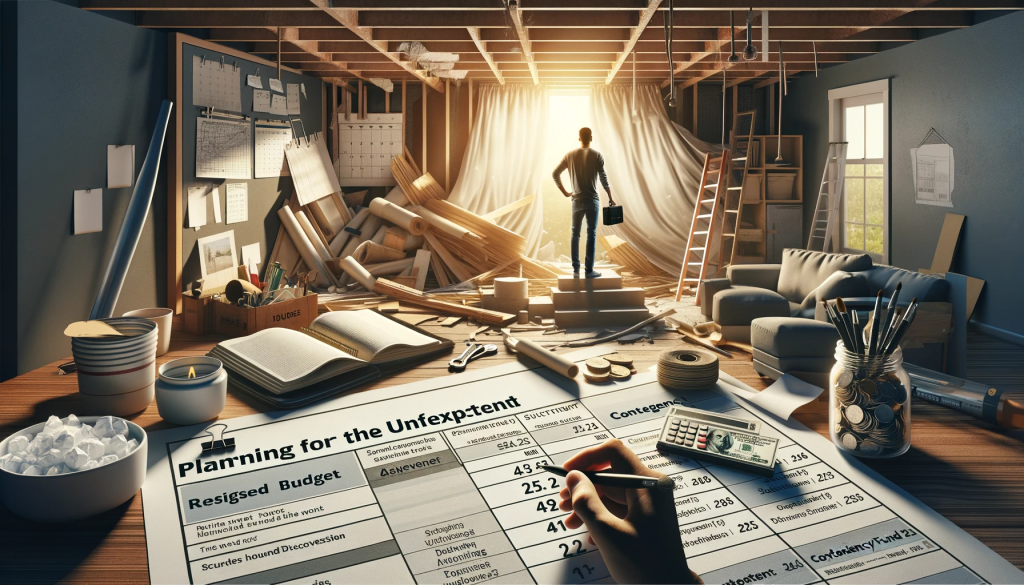Embarking on a home renovation project is exciting, yet it demands a well-thought-out financial plan to ensure your dream upgrades don’t turn into a financial nightmare.
Whether you’re planning to revamp your kitchen, add a new bathroom, or just give your living space a fresh coat of paint, understanding the financial implications is crucial.
This isn’t about dampening the thrill of transforming your space but ensuring you do it wisely, within your means, and possibly even enhancing your home’s value.
Let’s break down the essentials of budgeting for your home renovation, from initial estimates to securing funding.
Setting Realistic Budgets

Start with a clear vision of what you want to achieve and then, crunch the numbers.
Research the average costs of your desired renovations and don’t forget to factor in unexpected expenses.
Setting aside an additional 10-20% for unforeseen costs can save you from headaches later on.
Exploring Financing Options

Cash is king, but not everyone has the luxury of dipping into savings for a renovation project.
Exploring financing options such as home equity loans, personal loans, or even specific renovation loans can provide the necessary funds without stretching your monthly budget too thin.
Prioritizing Projects

Not all renovations offer the same return on investment (ROI).
Prioritizing projects that increase your home’s value, like kitchen and bathroom upgrades, can be a smarter financial decision.
It’s about striking a balance between what you want and what’s best for your home’s market appeal.
Seeking Multiple Estimates

Never settle on the first contractor quote.
Seeking multiple estimates not only gives you a better understanding of the potential costs but also provides leverage in negotiations.
Remember, the cheapest option isn’t always the best.
Consider experience, reviews, and past projects as well.
Understanding the Impact on Home Insurance

Significant renovations could alter your home’s value and its insurance needs.
Before you begin, check with your insurance provider to understand how your changes might affect your policy.
It’s better to update your coverage in advance than to find out you’re underinsured after the fact.
Creating a Timeline

Efficient time management can save money.
Establishing a realistic timeline helps avoid prolonged disruptions and can reduce costs associated with delays.
Plus, knowing when each phase of the renovation is expected to be complete allows for better financial planning.
Embracing DIY Projects

Consider what aspects of the renovation you can realistically take on yourself.
DIY projects can significantly reduce costs, provided you have the skills and time.
However, recognize when it’s best to leave it to the professionals, especially for structural, electrical, or plumbing work.
Monitoring Spending

Keep a close eye on your spending throughout the project.
This involves regularly updating your budget, keeping receipts, and tracking all expenses.
Software or apps designed for budgeting can be incredibly helpful in maintaining financial control.
Planning for the Unexpected

Even with the best planning, unexpected issues can arise.
Having a contingency fund and a flexible mindset can help you navigate surprises without derailing your project or finances.
Conclusion
Financial planning for home renovations doesn’t have to be daunting.
With careful preparation, a clear understanding of your financing options, and a realistic approach to budgeting, you can transform your home without compromising your financial health.
Remember, the goal is to enjoy your newly renovated space with the peace of mind that you’ve made smart, well-informed financial decisions.
